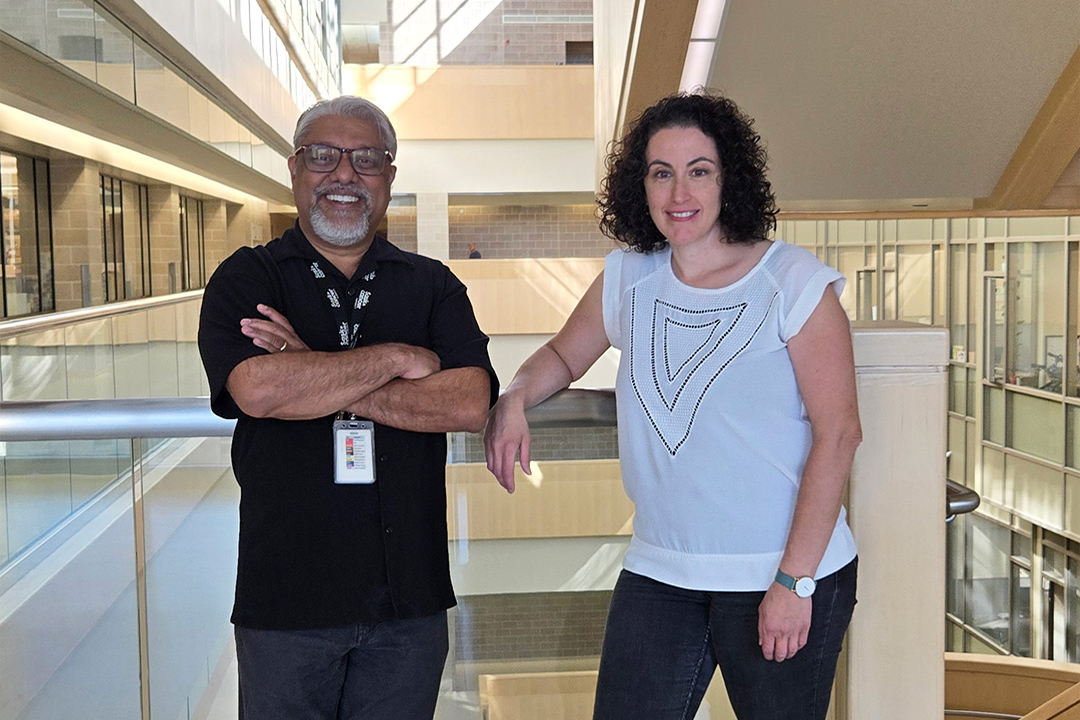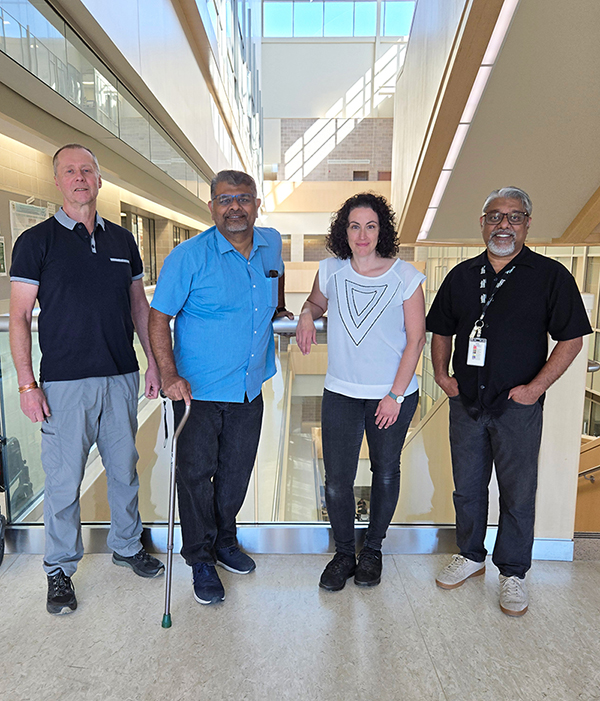
USask researchers receive CIHR funding for cancer research
Researchers from the University of Saskatchewan's (USask) College of Medicine received funding as part of Canadian Institutes of Health Research’s (CIHR) 2025 Spring Grant Competition.
By Amanda WoroniukDrs. Linda Chelico (PhD) and Franco Vizeacoumar (PhD), along with Dr. Andrew Freywald (PhD) and Dr. Frederick Vizeacoumar (PhD), are grant recipients for their respective projects targeting breast and pancreatic cancer.
Investigating the role of APOBEC in breast cancer progression
Chelico, a professor in the Department of Biochemistry, Microbiology and Immunology, received $1,029,202 for a five-year project, ‘Role of APOBEC3 single-stranded DNA cytosine deaminases in breast cancer’.
APOBEC3 is a type of protein that is present in our cells and helps our bodies defend against viruses. These proteins are also found in cancer cells, where they can cause mutations. Chelico’s lab investigates whether these mutations contribute to cancer progression or destruction, an inquiry that could reshape cancer treatment.
“APOBEC-induced mutations are found in approximately 75% of cancer types. The question is—are they helping cancer evolve or killing it?” she said.
Chelico envisions a future where understanding mutation pathways allows doctors to guide cancer cells toward self-destruction or immune clearance, rather than reacting to unpredictable tumor behavior.
She stated, “by understanding how APOBEC enzymes influence the cancer cell, we can transform cancer treatment into one that directs the tumor down a certain path, rather than chasing what the tumor is doing.”

Identifying and testing new targets for pancreatic cancer
Vizeacoumar is is an associate professor in the Department of Oncology, an associate member in the Department of Anatomy, Physiology, and Pharmacology, and a senior scientist with the Saskatchewan Cancer Agency. He received $1,105,426 for a five-year project, Telomere-Directed Epigenetic Therapy: A Novel Approach for Treating Pancreatic Ductal Adenocarcinoma.
Together with Freywald and Frederick Vizeacoumar, their research looks at Pancreatic Ductal Adenocarcinoma (PDAC), a type of pancreatic cancer that has one of the highest mortality rates. PDAC does not have any visible symptoms and is often diagnosed too late for surgery—leaving only chemotherapy and radiotherapy as treatment options.
In about 80% of PDAC cases there are higher-than-normal levels of the enzyme telomerase. In normal cells telomerase protects DNA by adding protective caps (nucleotides) to the end of our chromosomes. However, in some cancers the over production of telomerase allows cancer cells to grow and divide infinitely—something normal cells cannot do. Because of this, scientists are looking at ways to target and inhibit telomerase as a possible treatment for cancer.
“Cancer cells have a survival trick, they shield the ends of their chromosomes to keep dividing, avoiding any loose ends,” he said. “We have found a way to untie these ends, crack their armour, and are developing drugs to turn this discovery into powerful, targeted therapies. Basically, we are taking away cancer’s ‘do-not-disturb’ sign.”
With this CIHR grant, Vizeacoumar’s team will find and test possible therapies that target pancreatic cancer cells that overproduce telomerase. Focusing on these targets could lead to treatments that kill cancer cells without harming normal cells and to better therapies for pancreatic cancer in the future.
The CIHR Project Grant program supports ideas that advance health research across all subject areas, led by individual researchers or research teams at any stage of their careers.
Article re-posted on .
View original article.

